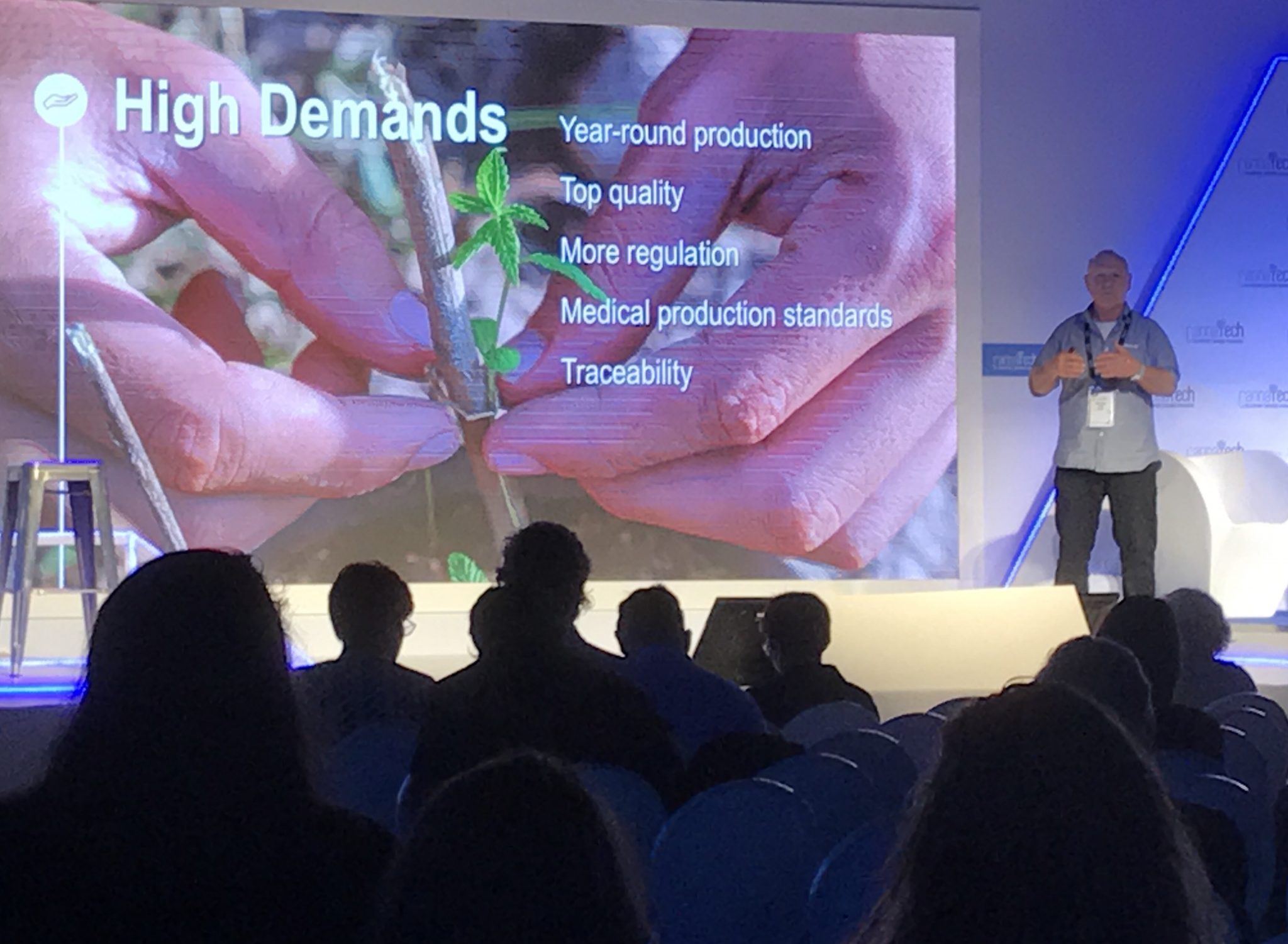Israeli startups are working hard to improve methods of administration for medical cannabis and ensure safe, measured doses and standardized extract formulations.
That was the central theme of this year’s CannaTech in Tel Aviv, Israel’s premier medical cannabis conference.
“Doseable, repeatable cannabis is a reality,” Saul Kaye, cofounder of iCAN Israel-Cannabis and CannaTech, told reporters.
Yuval Landschaft, director of the Health Ministry’s Medical Cannabis Unit, gave a keynote address about medical-grade cannabis products and his belief that Israelis will be able to access them within the coming year.
“We believe cannabis should be a medicine like any other medicine,” said Landschaft.
“The medical cannabis industry is very much in its infancy in many areas, including drug delivery,” said Doron Friedman, a pharmaceutical R&D specialist.
“However, a few of us with pharmaceutical backgrounds are now applying our knowledge and experience to this burgeoning sector, setting standards to create smarter, more sophisticated systems to ensure safe, measured doses, and standardized extract formulations.”
How much are you inhaling?
Kanabo Research, a Tel Aviv-based medical cannabis venture, develops pioneering technologies including the VapePod vaporizer, which delivers precise and consistent doses of medical cannabis extracts.
“We are dedicated to exploring and developing new plant-based therapies and improved methods of administration for unmet needs for the benefit of patient populations,” said Kanabo’s Board Chair David Tsur, a pharmaceutical executive and former Israeli chief economist.
CannRx Technology is developing pharmaceutical-grade products using a proprietary method to capture and stabilize cannabinoids produced either by smoking, vaporizing or extraction technologies, resulting in water-soluble or bioavailable cannabinoids.
Bill Levine, executive chairman of CannRx, said his company’s solution will convert cannabis smoke to powder for use in an inhaler. When smoking a joint, he pointed out, you have no idea how much you are inhaling or exhaling.
At the Tel Aviv event, New York-based CannRx — initially formed as a subsidiary of Jerusalem’s Izun Pharma — announced a joint venture with iCAN:Israel-Cannabis to market ican.sleep, the first advanced sleep cannabis formulation utilizing the company’s CannTrap platform.
And Steep Hill Labs, a leading cannabis science and technology company, announced at CannaTech that it entered a joint venture with iCAN:Israel-Cannabis to open an analytical, genetic, and R&D lab in Israel to further research the cannabis plant.
“We believe that Israel is the epicenter of cannabis research and development. We look forward to its role in leading the evolution of medical cannabis worldwide,” said Jmichaele Keller, CEO of Steep Hill Labs.
These are just three examples of a burgeoning industry. Economists foresee the potential overall market worth of cannabis-related goods and products in the tens of billions of dollars in the next decade.
“We’re doing more research in Israel than anywhere else. We have destigmatized cannabis and we have a medical approach to cannabis,” Kaye said.
“We’re seeing medicalization and we’re seeing reform happening quicker than anywhere else. It might take two years, it might take five years, but it will happen.”
Kaye says that Israel’s role is to lead the research, validate the data and build a methodology behind getting that data.
CannaTech goes global
CannaTech brought together about 700 researchers, industry leaders and experts in science, finance, medicine, government policy, tech innovation, agriculture and entrepreneurship. Some 60 percent of them came from outside of Israel.
“CannaTech is a global platform that allows participants to meet and collaborate. Other conferences focus on what’s happening now in cannabis; CannaTech is the place to see what is next in cannabis,” says Kaye.
CannaTech’s mission is to share Israeli innovation and ingenuity, and highlight the country as a cannabis development center.

Kaye announced that the summit is now going global, with similar events in Sydney and London planned this year.
Adam Miller, CEO of BuddingTech in Sydney, tells ISRAEL21c that Australia and Israel are “ripe for working together” in the medical cannabis field.
“Israel has been in this industry longer than countries like the US and Canada, and the approach they’ve taken is very much medical,” Miller says.
“The innovation and the outlook are much more in alignment with the UN Single Convention, for example, which is about developing a medical market. And that’s why I’m so impressed.”
Growing great marijuana
In addition to improved methods of administration for medical cannabis, Israeli companies are creating protocols for growing marijuana. Until now, growers were secretive about their techniques.
“Because cannabis was grown for many years in an underground way, there’s no knowledge about it,” Dubi Raz, corporate agronomy director of Netafim, tells ISRAEL21c.
Netafim, a pioneer in agriculture technologies such as drip irrigation for over 60 years, is taking a major role in this field.

“We have an idea to create a methodology of how to grow cannabis ans to share this knowledge, to make it public, to work with universities and researchers,” Raz says. “Netafim wants to help people and we believe by doing good we can do well.”
Raz showed CannaTech participants how the company’s agronomists, engineers and other experts will create a “systematic approach” to growing cannabis in an exacting and safe way to fulfill standards dictated by the medical field.
“If you have too much phosphorus, it might be dangerous for your health,” Raz says about the need for precision. “We’re talking about medical standards; this is not a regular crop. So we need to make sure that this is safe.”
Raz believes Israel could break out as the leader of growing medicinal marijuana.
“Many companies are already approaching us,” he tells ISRAEL21c.

















